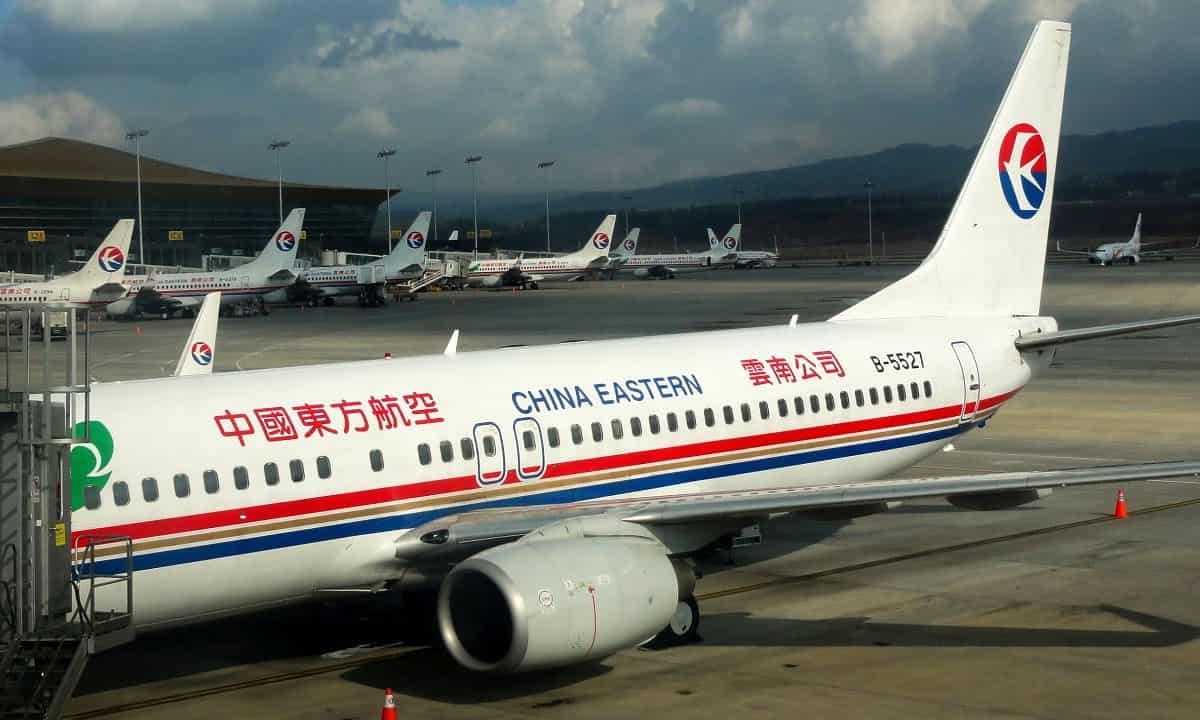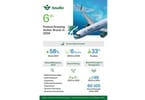A recent plan by United Airlines to shift its credit card merchant fees and the associated risk onto the backs of consumers and travel agents would undermine the chargeback protection guaranteed consumers under the Fair Credit Billing Act, attendees at a briefing on Capitol Hill learned today. The event, held by ASTA with its industry allies, the Business Travel Coalition (BTC), the Interactive Travel Services Alliance (ITSA), and the National Tour Association (NTA), was part of the groups’ ongoing campaign to secure Congressional hearings to look more deeply into United’s actions and the devastating consequences these actions could have on small businesses and consumers if adopted by other airlines.
At the briefing, Rep. Michael Arcuri (D-NY) issued a statement reiterating his belief that United’s policy “threatens to place unnecessary costs and risks on small businesses and consumers across the country,” and stated his intent to pursue the issue further when the Congressional recess ends.
Anne Fortney, a partner with Hudson Cook, LLP, and former associate director for credit practices with the Federal Trade Commission’s Bureau of Consumer Protection, noted in her comments that “[i]f a travel agent could not use the airline’s merchant account, the card-issuing bank would chargeback the travel agent’s account, and thus penalize the party that has no responsibility for, or control over the delivery of the travel services, and the party that would have paid the airline for the services with its own funds. … A bankruptcy involving an airline, cruise line, or other major provider of travel services would destroy travel agencies because they would be unable to withstand the total volume of chargebacks from consumers.”
In his comments, Paul Ruden, senior vice president of legal and industry affairs for ASTA, said [United’s proposed policy] “has all the earmarks of a trial balloon looking for followers – a pattern of behavior familiar to all students of the airline industry. … The history is that when parallel adoption of policies in the airline industry occurs, it happens fast with no time to legislate solutions before potentially great harm is inflicted or fear of harm begins to disrupt the market. With 88 percent of travel agency sales on credit cards – more than 127 million such transactions in 2008 alone – such actions put millions of consumers at risk.”
Chris Russo, president and chair of ASTA and the owner of Travel Partners (Broomfield, Colorado), addressed the group and said that United’s plan has the “potential to affect tens of millions of people every year, to the tune of hundreds of millions of dollars in transferred fees. More significant even than this is the dramatic, unprecedented shift in risk that United is proposing to offload not just to travel agents like me, but also to consumers.” Olga Ramudo, owner of Express Travel (Miami) and one of the agents specifically targeted by United’s policy, stated that should United’s efforts not be curtailed and were other airlines to follow suit, hundreds of agencies would be forced to close their doors in Florida alone, leaving thousands of people unemployed and consumers without access to unbiased travel advice.
Kevin Mitchell, chairman of the BTC, spoke on behalf of the industry partners and set out principles for legislation regarding the issue of credit card cost and risk shift. Among them the ideas that “airlines must remain the merchant-of-record for all air transportation sales on their behalf to ensure the rights of consumers in bankruptcy proceedings are respected” and that “no travel agency should be forced to bear increased costs, the avoidance of which would place the agency in violation of state law.”
Media and Congressional staff also heard from Steve Richer, public affairs advocate for NTA, and Art Sackler, executive director, ITSA, both of whom reaffirmed their organizations’ commitment to resisting the spread of the United model and emphasized the destructive impact the policy would have on their constituencies in the event other airlines follow suit.
ASTA CEO Bill Maloney, CTC, concluded the event by saying, “Our ‘ask’ is simple: to fully understand both the policy and its consequences, the appropriate committees of Congress should hold hearings in October to explore these issues on the record and consider federal legislative solutions to mitigate the impact.”
On June 26, 2009, United Airlines quietly began providing selected travel agencies nationwide with notice that, effective July 20, they would no longer be permitted to use United’s merchant account for credit card ticket sales. Instead, agencies would be forced to obtain and use their own merchant accounts and settle with the airline in cash. That deadline has since been extended 60 days, as a result of a Congressional request led by Rep. Arcuri in the House and Senators Wyden and Merkley in the Senate. In cutting off travel agents from its merchant account, many of those travel agencies will be forced out of business, while those who are able to open merchant accounts of their own would be forced to pass additional fees on to their clients. In 10 states, however, law forbids retailers from passing credit-card surcharges on to consumers. Additionally, under United’s new policy, these protections would be diluted as consumers would be forced to abide by the terms of travel agencies’ credit-card agreements rather than the airline’s agreement. The result for the traveling public: fewer choices and a near-total elimination of consumer protections – at a higher price.
To learn more about the issue and to read comments from today’s briefing, please visit www.ASTA.org/Government.
WHAT TO TAKE AWAY FROM THIS ARTICLE:
- Anne Fortney, a partner with Hudson Cook, LLP, and former associate director for credit practices with the Federal Trade Commission’s Bureau of Consumer Protection, noted in her comments that “[i]f a travel agent could not use the airline’s merchant account, the card-issuing bank would chargeback the travel agent’s account, and thus penalize the party that has no responsibility for, or control over the delivery of the travel services, and the party that would have paid the airline for the services with its own funds.
- Chris Russo, president and chair of ASTA and the owner of Travel Partners (Broomfield, Colorado), addressed the group and said that United’s plan has the “potential to affect tens of millions of people every year, to the tune of hundreds of millions of dollars in transferred fees.
- A recent plan by United Airlines to shift its credit card merchant fees and the associated risk onto the backs of consumers and travel agents would undermine the chargeback protection guaranteed consumers under the Fair Credit Billing Act, attendees at a briefing on Capitol Hill learned today.






















